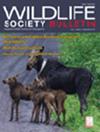Evaluating impacts of R3 workshops for first‐time hunters at universities across the United States
IF 1.5
4区 环境科学与生态学
Q3 Environmental Science
引用次数: 0
Abstract
Declines in hunter numbers across the United States make hunter recruitment, retention, and reactivation (R3) a high priority for wildlife management. As wildlife management agencies and nongovernmental organizations seek to reach new audiences, college campuses present a unique opportunity to cultivate nontraditional path hunters. Despite recent proliferation of R3 initiatives, little research has evaluated effects of hunting programs on knowledge, attitudes, and behaviors of new hunters. We designed and implemented Getting Started Outdoors: Hunting 101 workshops specifically targeting college students without previous hunting experience, and we assessed workshop efficacy with a theoretically‐grounded approach to workshop evaluation. Using quantitative and qualitative analysis of surveys conducted before, shortly after, and 12–18 months after workshops, we assessed impacts of R3 efforts at large public universities in 16 different U.S. states. Across all states, 19 workshops attracted 314 total participants, with 255 completing both pre‐ and post‐workshop assessments and 133 completing the follow‐up surveys. Workshops significantly increased participants' confidence in hunting, reduced barriers related to inadequate knowledge and skills, and fostered positive views of hunters and hunting. Immediately after workshops, most participants said they would definitely (50%) or probably (34%) hunt in the future; 82% said they would likely (or very likely) purchase a hunting license. Over one year after the workshops, 34% of workshop participants reported having hunted, and another 45% said they would probably hunt in the future. Overall, workshops attracted a diverse population of potential hunters, increased interest in future hunting, and created hunting advocates. Findings highlight the potentially powerful impact that R3 programs focused on diverse college students can have on the future of hunting across the United States.评估R3研讨会对美国大学第一次猎人的影响
美国各地猎人数量的下降使得猎人的招募、保留和再激活(R3)成为野生动物管理的重中之重。随着野生动物管理机构和非政府组织寻求接触新的受众,大学校园为培养非传统的路径猎人提供了一个独特的机会。尽管最近R3的倡议越来越多,但很少有研究评估狩猎计划对新猎人的知识、态度和行为的影响。我们设计并实施了户外入门:狩猎101工作坊,专门针对没有狩猎经验的大学生,我们用理论为基础的工作坊评估方法来评估工作坊的效果。通过对研讨会前、研讨会后不久和研讨会后12-18个月进行的调查进行定量和定性分析,我们评估了R3在美国16个不同州的大型公立大学所做的努力的影响。在所有州,19个研讨会共吸引了314名参与者,其中255人完成了研讨会前和研讨会后的评估,133人完成了后续调查。讲习班大大提高了参与者对狩猎的信心,减少了与知识和技能不足有关的障碍,并培养了对猎人和狩猎的积极看法。讲习班结束后,大多数参与者表示他们肯定(50%)或可能(34%)在未来打猎;82%的人表示他们可能(或非常可能)购买狩猎许可证。讲习班结束一年多后,34%的讲习班参与者报告说他们曾经打猎,另有45%的人说他们将来可能会打猎。总的来说,讲习班吸引了各种各样的潜在猎人,增加了对未来狩猎的兴趣,并创造了狩猎倡导者。研究结果强调了R3项目对不同大学生的潜在强大影响,这些项目可以对美国各地的狩猎未来产生影响。
本文章由计算机程序翻译,如有差异,请以英文原文为准。
求助全文
约1分钟内获得全文
求助全文
来源期刊

Wildlife Society Bulletin
BIODIVERSITY CONSERVATION-
CiteScore
2.10
自引率
13.30%
发文量
0
期刊介绍:
The Wildlife Society Bulletin is a journal for wildlife practitioners that effectively integrates cutting edge science with management and conservation, and also covers important policy issues, particularly those that focus on the integration of science and policy. Wildlife Society Bulletin includes articles on contemporary wildlife management and conservation, education, administration, law enforcement, and review articles on the philosophy and history of wildlife management and conservation. This includes:
Reports on practices designed to achieve wildlife management or conservation goals.
Presentation of new techniques or evaluation of techniques for studying or managing wildlife.
Retrospective analyses of wildlife management and conservation programs, including the reasons for success or failure.
Analyses or reports of wildlife policies, regulations, education, administration, law enforcement.
Review articles on the philosophy and history of wildlife management and conservation. as well as other pertinent topics that are deemed more appropriate for the Wildlife Society Bulletin than for The Journal of Wildlife Management.
Book reviews that focus on applied research, policy or wildlife management and conservation.
 求助内容:
求助内容: 应助结果提醒方式:
应助结果提醒方式:


